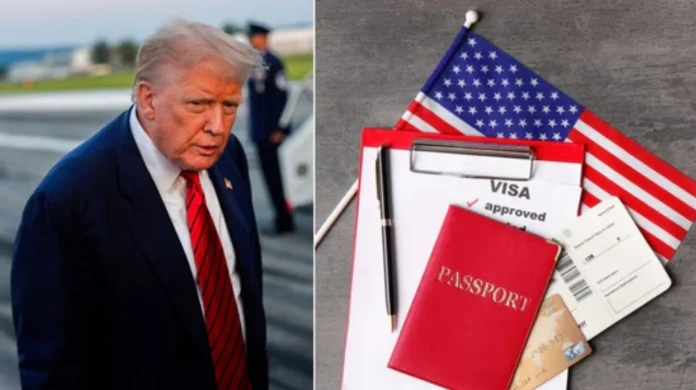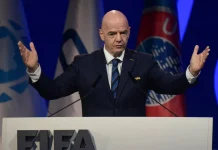The end of the years-long legal battle between former FIFA president Sepp Blatter and former UEFA president Michel Platini in August 2025 has underscored the endemic malfunction in the heart of international football governance. After 11 years of legal investigation and two trials, with the wider public outcry, the Swiss prosecutors officially terminated the investigation into a disputed 2011 payment of 2 million Swiss francs to Platini by FIFA, without making a conviction.
The payment which was allegedly to be made to Platini as a consultant who worked between 1998 and 2002 was questioned to be illegal and unauthorized and was not properly documented. However, the Swiss courts ruled in favor of the defense explanation stating that the fact that there were no written contracts could not be considered a criminal fraud. Even though the FIFA Ethics Committee imposed internal bans on both Blatter and Platini in 2015-eight and six years, respectively-the institutional and legal action in its entirety indicates a structural failure to convert wrongdoing with accountability.
Structural failures enabling impunity
The absence of transparency and an inward-looking organizational structure that does not welcome any external control have traditionally influenced FIFA internal governance. During the investigation FIFA refused to collaborate with prosecutors and auditors completely. Important documentation, such as authorizations of financial records and letters, was not available or could only be made partial. This atmosphere of secrecy protected leadership to be questioned and weakened people’s trust in the virtue of the organization.
Attempts by corruption investigators to unearth more profound patterns of corruption usually fail at the roadblocks on grounds of internal resistance and institutional inertia. Internal reports indicated that the top managers acted by informal dealings and oral pacts, and that made it difficult to legally evaluate and strengthened a culture of organizational impunity.
Governance deficits and ineffective reforms
After the 2015 corruption scandal resulted in the arrests of several officials, as well as the provisional suspension of several of the most senior officials, FIFA declared a set of governance reforms. This comprised the introduction of the term limits, division between political and managerial operations, and the creation of compliance control. Nonetheless, FIFA has not undergone any cultural counterpart of changes. Critics indicate that the reforms were more of a show but did not allow them to break the power networks that were facilitating decades of mismanagement.
Personal relationship and political entangling within the governing body still remains as the barricade in promoting independence and control. Even the Ethics Committee itself has been criticized as being powerless to enforce, and as being subject to the same influences of which it is charged with policing.
The reputational cost: Legacy of scandal and lost trust
The FIFA dysfunction scandal has caused a severe reputational bleeding to the most influential governing body in football. Previously considered as the guardian of the most popular sport in the world, FIFA is subjected to unrelenting questions regarding the capacity to enforce fairness and transparency. Global sponsors and corporate partners have reduced their endorsements and Europe and South America football associations have demanded more independent mechanisms of governance.
The harm is spread to confidence in fans. The perception that football management is influenced more by politics and that it is a business than a sport compromises the credibility of tournaments, decision-making by leaders and the validity of international ranking and bidding procedures. The 2026 world cup preparations (to be hosted in the US, Canada and Mexico) have been met with fresh demands of transparency and anti-corruption promises.
Blatter and Platini, in their turn, have insisted in their innocence and have also presented the investigation as politically based. Platini argued that he was the victim of a plot to prevent his way to FIFA presidency, and Blatter stated that gentlemen agreements were a practice of the previous periods in sports governing. However, these defenses have done little to restore the trust of the people or to recalibrate the huge divergence between private deals and contemporary demands of accountability.
A missed opportunity for justice and reform
Despite multiple layers of inquiry and international attention, the legal proceedings around the FIFA dysfunction scandal ultimately ended with no criminal convictions. While internal sanctions temporarily sidelined the central figures, the broader questions of how systemic corruption could continue for years without serious consequence remain unanswered.
The case has been iconic in the inability to address transnational cases of corruption in sporting institutions by the current legal frameworks. In 2015, a set of investigations conducted by the US Department of Justice found widespread bribery and vote-buying related to the selections of world cup hosts and sponsorship agreements. But the absence of enforceable international jurisdiction and unreliable collaboration of national governments thinned out the future possibilities of long-run accountability.
The ultimate ruling by Swiss prosecutors in 2025 that they would continue no further appeals was symbolic of a formal conclusion of the scandal. The lack of any subsequent litigation is frustrating to many stakeholders such as reformers, transparency watchdogs and former players who wanted a fresh start in the governance failure of the past decades.
This individual has commented on the issue with the resolution of the case being viewed as a symptom of FIFA unaddressed malfunction and its inability to undergo change according to the expectations of the world regarding transparency and accountability:
❗️BREAKING: Michel Platini and Sepp Blatter are now completely free of all charges, as the Public Prosecutor of the Confederation has withdrawn the appeal against their acquittal. pic.twitter.com/t53NsbAqM3
— Forza Juventus (@ForzaJuveEN) August 28, 2025
Institutional inertia and implications for global sport governance
The FIFA dysfunction scandal is an incident that can be closed that highlights the issues that still prevail in the field of international sporting bodies regarding transparency, supervision, and reform. Global sports federations like FIFA are in a loosely regulated environment unlike corporate entities which are under the pressure of the shareholders and even governmental bodies which are operating nationwide. This position allows internal decision-making which is resistant to outside interference and has no internal accountability mechanisms such as those found in other areas.
Inertia is also caused by unwillingness of national associations to oppose FIFA. Although the problems are well documented, not many of the member states in the FIFA congress have called to seek a structural overhaul. The deep-rooted nature of vested interests, particularly with regard to leadership contests and allocation of funds, perpetuates a system that in most cases rewards loyalty over reforms.
The resolution of the scandal can bring short term institutional stability, however, the lack of punitive measures conveys the wrong messages. To sport athletes, fans and sponsors who want to see a new wave of sport governance marked by ethical sport there is the resultant disconnection between what the people want them to be and what the institutions are able to do.
This is a defining time in the history of FIFA. With the focus of the world moving to the next tournaments and governmental elections in the year 2026, the concern on how a decade of dodging was given permission to go on with almost no alteration is bound to be brought up again. What the future of leadership can reveal is whether it will realise such failures and take any real reforms or repeat the same trends with new faces.













